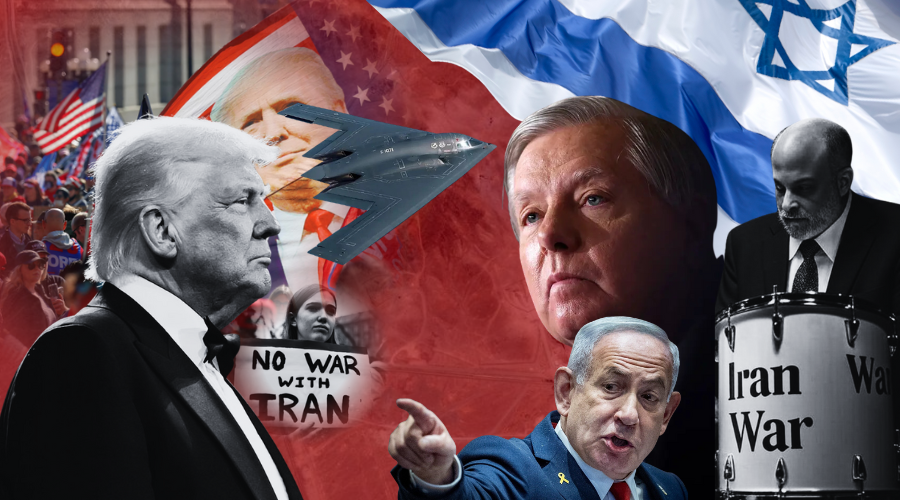Strength and Restraint: Trump’s Iran Takedown

By Hunter DeRensis
On the evening of Saturday June, 21st, to borrow a termopens in a new tab from one of the American Civil War’s most famous generals, President Donald Trump “rolled the iron dice of battle” and conducted an air raid on Iran’s three nuclear facilities, one of the riskiest decisions of either of his presidencies.
Wars that spiral out of control have ruined multiple administrations, the prime example being Vietnam. The war Lyndon Johnson had wanted to fight was the one on poverty, spending unprecedented billions in new welfare programs (which still saddle the U.S. budget). But he refused to walk away from the developing quagmire in Southeast Asia, even though he recognized there was no obtainable victory.
“This Nation is mighty enough, its society is healthy enough, its people are strong enough, to pursue our goals in the rest of the world while still building a Great Society here at home,” Johnson said during his State of the Union address in January 1966.
At that time, the United States had 185,000 American servicemen deployed to Vietnam. Two years later, in January 1968, that number had swelled to over 500,000. This preoccupation stunted his goals for the Great Society—institutionalizing poverty rather than curing it—and military setbacks like the Tet Offensive, along with widespread domestic unrest (a side effect of the war), shattered the Democratic coalition that had dominated the country for over thirty years.
George W. Bush attempted to pursue domestic reforms in education and entitlements, along with ideas like enshrining traditional marriage in the Constitution. But his time in office will be singularly defined by the failure of the counterintuitive Global War on Terror.

Four G Media Contributor Hunter DeRensis
In 2016, Donald Trump was nominated by the Republican Party as a direct repudiation of Bush and his neoconservative program. “They lied, they said there were weapons of mass destruction, there were none, and they knew there were none,” Trump famously declaredopens in a new tab to Jeb Bush’s face on the debate stage.
Trump’s claim that he “doesn’t careopens in a new tab” that U.S. intelligence concluded Iran is not pursuing nuclear weapons doesn’t make it any less true. On Thursday, Defense Secretary Pete Hegseth held a press conference and gave the administration’s assessment of the strength and the severity of these strikes, which they maintain greatly damaged the future nuclear capabilities of Iran. This ran counter to reporting by CNN that a Defense Intelligence Agency leak found last Saturday’s targeted bombing campaign did not damage the core components of the Iranian nuclear program or their supply.
Previous commanders-in-chief probably would have doubled down after that assessment, implementing a widening of the war and even adopting a strategy of regime change in Tehran. Wars have a tendency of taking on a momentum of their own and involve making decisions you never would have originally considered in peacetime. Afghanistan wasn’t sold as a nation-building project. And Iraq wasn’t sold as democracy promotion. But that’s what they became when presidents prioritized saving face over cutting losses.
Donald Trump, not for the first time, has broken that mold. With his emblematic showmanship, he declaredopens in a new tab the operation a complete success, foreswore interest in further military engagement, and late Monday night announcedopens in a new tab a ceasefire between Iran and Israel after their so-called “12 Day War.” Despite fits and starts and violations in the early hours—including a salty worded reprimandopens in a new tab from the president—the shaky truce has held.
By agreeing to a ceasefire, and having the humility and foresight to step back before he lost escalation dominance, Trump once again proved himself wiser than either Johnson or W. Bush. It’s a lesson he’ll have to adhere to during his remaining four years in office, with pressure to commit to a full-scale war bearing down on the White House from media personalities like Mark Levin or Beltway think tankers like Mark Dubowitz, and their oratorical benefactor Israeli Prime Minister Benjamin Netanyahu.
The decision to bomb Iran and risk participation in a new war in the Middle East ruptured the “Make America Great Again” coalition. Embryonic during Trump’s first campaign, it only emerged as a fully formed governing majority in 2024. Centered on the GOP’s original conservative base, it expanded to include Obama-era independents, a majority of the working class, and an increase of minority men.
There is not a single demographicopens in a new tab—young or old, black or white, man or woman, Democrat or Republican—who favored going to war with Iran. For the most relevant numbers, 53% of 2024 Trump voters said no to joining the Israel-Iran war, and only 19% support doing so. This majority found its voice in conservative media figures like Tucker Carlson and Steve Bannon and in legislators like Marjorie Taylor Greene (R-GA).
Thirty-five years ago, Pat Buchanan incisively observed “There are only two groups that are beating the drums for war in the Middle East—the Israeli Defense Ministry and its amen corner in the United States.” That’s still true today.
Israel does not have the manpower, military equipment, or supply reserves to win a war of attrition or even temporarily eliminate the Iranian nuclear program. But they still started a war they knew they couldn’t win because of an expectation that the United States would be the stopgap and complete their project. While Saturday’s airstrikes may only embolden Israeli aggression in the region, Donald Trump must not sacrifice his domestic mandate to bail out Netanyahu.
If the United States becomes embroiled in another major war, whether on behalf of Israel or its own wayward globalist pretensions, the MAGA agenda will go up in smoke.
The potential for mass deportations would be off the table. A law enforcement program to remove the tens of millionsopens in a new tab of illegal aliens residing in the United States will require the highest prioritization, an irreversible determination, and closed political ranks enforced around the objective. A new war of choice in the Middle East, against a country three times larger than Iraq, would absorb Washington’s singular focus, all the administration’s political capital, and the deployment of the whole of the U.S. National Guard, making opposition to mass deportations, which we caught the first taste of in Los Angeles, insurmountable.
Trump promised to liberate the American energy industry and bring down fuel costs for consumers. But as our founder Four G Dave has warnedopens in a new tab, a war with Iran could spike the price of crude oil as high as $300 a barrel.
Are you seeking to tear away the Deep State’s veil of secrecy, gut its influence operations, and bring accountability to its countless criminal actors? Instead, you could expect a healthy increase in their budget and operational control of the government, an inevitable consequence of any war.
Diplomatic breakthroughs in other parts of the world, from negotiating a peace between Ukraine and Russia or rekindling Trump’s overtures to North Korea, are unlikely to be feasible. By cooperating in a surprise attack against a country we were sitting at the negotiating table with, how much trust was lost that cannot be regained? Our international reputation has already been blackened by this temporary endeavor.
Real glory resides in keeping America identifiably America; pursuing another endless war is false glory whose laurels will be like flowers laid at your grave. Let’s hope President Trump continues to exercise greater caution than his predecessors.